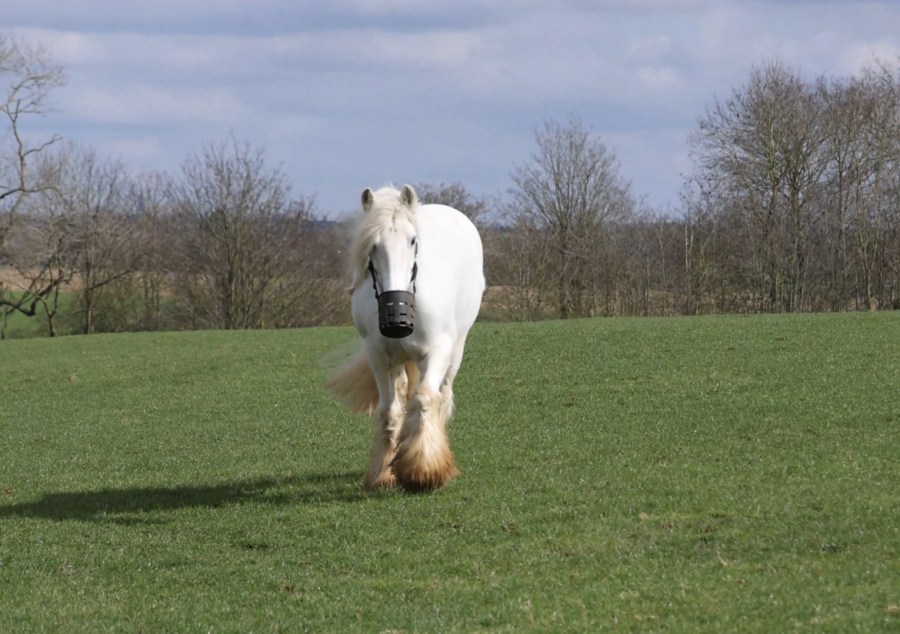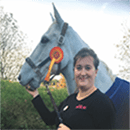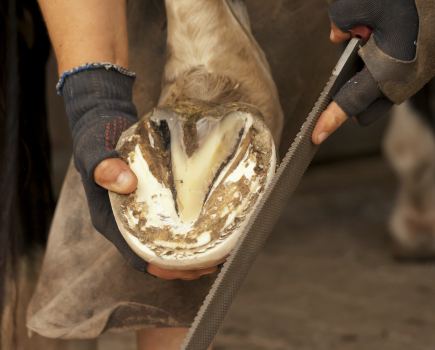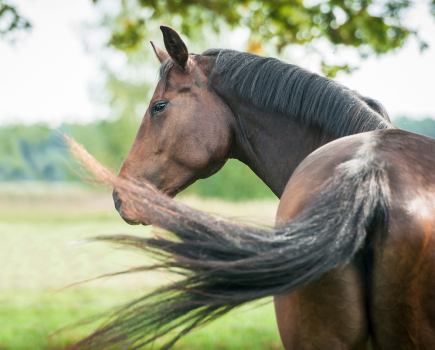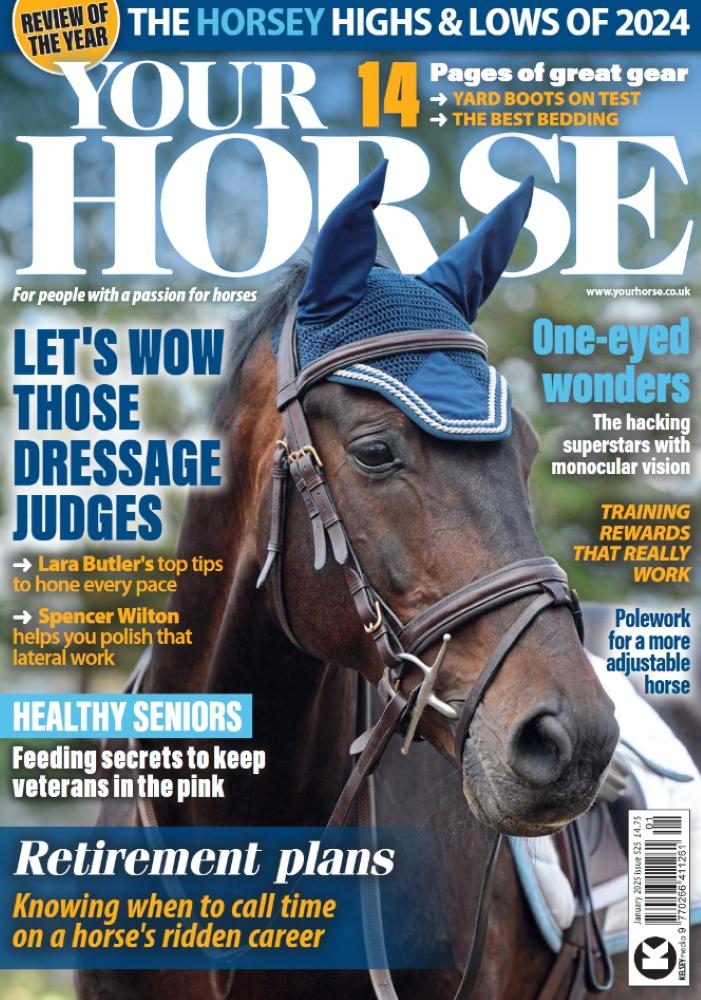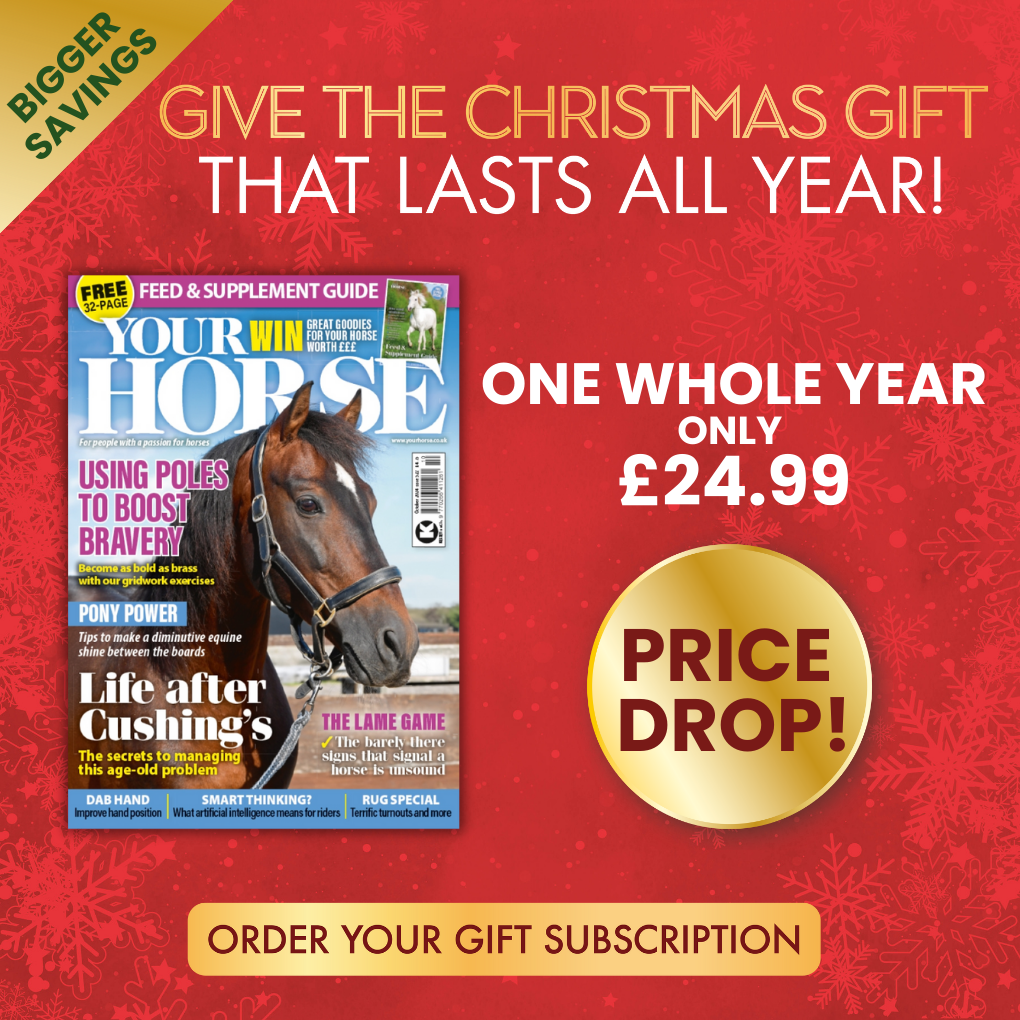In partnership with SPILLERS™
We all know that horses (and people) gain excess weight when they consume more calories than they burn. While increasing exercise can help and has other health benefits to offer, the key to weight loss is a calorie-restricted diet.
This can be achieved in a number of ways, but there’s no magic bullet and the most suitable method or combination of methods varies between individuals. How Hannah Conisbee manages her 12-year-old Gypsy cob Floss’ waistline is a great example of what can be achieved through implementing a weight loss programme.
“I’ve owned Floss for seven years and, although she’s always been a good doer, her weight started to creep up while she was on six months’ box rest for a broken hock in 2019,” says Hannah.
“She continued to gain weight once turned back out and in June last year, she was diagnosed with low-grade laminitis and equine metabolic syndrome (EMS), resulting in another six weeks of box rest.”
Classed as obese
At her heaviest, the 14hh mare weighed 533kg (on a weighbridge) and had a body condition score of seven out of nine (7/9), which is classed as obese.
“Floss has been on a balancer and low-calorie chaff ever since and was on strictly weighed out rations of soaked hay while on box rest,” continues Hannah.
“Her return to grazing was made very gradually, initially in a small strip-grazed paddock.
“Floss is now turned out in the day in winter and overnight during the summer, but wears a grazing muzzle all-year round as there’s always more grass than she needs.
“Some horse owners aren’t keen on muzzles, but Floss took to wearing one really well and it has enabled me to manage her weight while giving her more time in the field with her friends.
“I also use the winter months to my advantage. She’s chaser clipped but wears a lightweight rug with no neck.”
A 14 inch loss!
Floss now weighs 459kg and has a body condition score of 5/9. Her insulin levels are also under control.
“She’s also gone from wearing a 56 inch girth to a 42 inch girth,” smiles Hannah.
“Spillers come to the yard with a weighbridge every six months, but I use a weigh tape to track whether she’s losing or gaining weight in between visits.
“I do as much exercise as possible with Floss to help keep her trim and I have regular lessons with my biomechanics coach, Julia La Garde.
“I wasn’t sure if Floss would ever be able to return to work after breaking her hock, but in July 2024 [five years after her injury] she cantered a 20m circle for the first time since it happened. She’s come so far.”
I felt like I’d failed her
“Every horse owner’s journey is different, and I know some really struggle with feeling ‘mean’ about restricting their horse’s diet. For me, the hardest thing by far was feeling that I had contributed to Floss getting laminitis,” confesses Hannah.
“When my vet explained that obesity increases the risk of laminitis and insulin dysregulation, I felt like I’d failed her.
“Realising it was in my power to take control of her weight and help prevent the pain of laminitis in the future gave me all the motivation I needed.
“I’m also lucky to have the support of an amazing friend, Jess, whose gelding is also a good doer. We keep our Floss and Bear together and, if I seem like I might falter and let Floss’s management slip, she reminds me how far we’ve come,” adds Hannah.
Listen to the professionals
Hannah’s advice to other horse owners is listen to the professionals.
“If you are told your horse is overweight, it is coming from a place of experience,” she says. “Listen when they teach you how to body score your horse too — fat pads aren’t always easy to spot if you’re not looking for them.
“Now I know what to look for I see overweight horses everywhere. Together with Jess, I’m trying to champion the (weight loss) cause.”
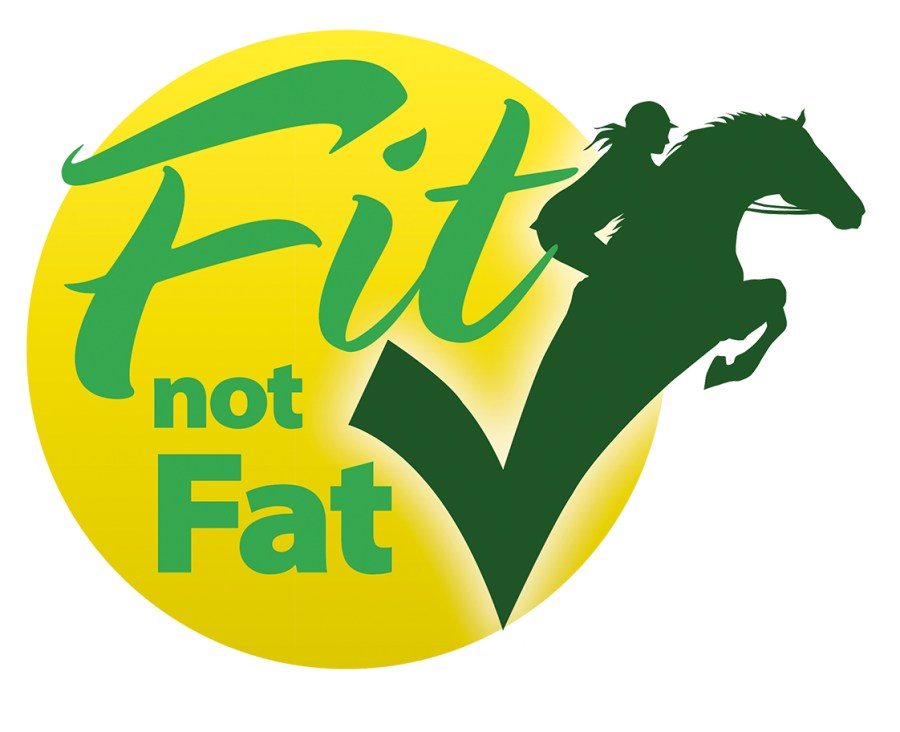
Have you heard about Your Horse’s #FitNotFat campaign? Equine obesity is an enormous welfare problem and we’re on a mission to provide owners and riders with the knowledge, skills and information you need to keep your horse in tip-top health. It could be life saving! Find out more
For friendly, advice on feeding your horse or pony you can contact the SPILLERS Care-Line on 01908 226626 or visit www.spillers-feeds.com.

